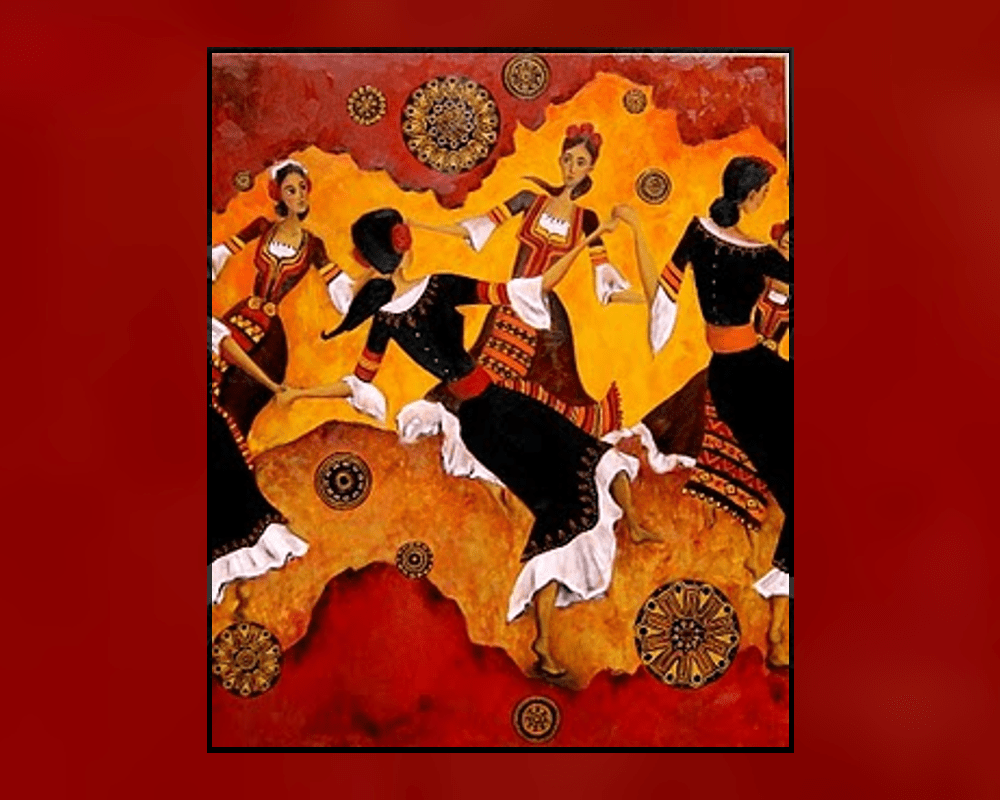On May 15, the Balkan Music Ensemble presents the instrumentally and vocally diverse music of the Balkans in Balkan Grooves.
Irene Markoff, the director of the Balkan Music Ensemble course and performance, is an ethnomusicologist and performer with a focus on music from Bulgaria, Turkey, and the Balkans. When she was hired to teach at York 20 years ago, she was specifically asked to direct the Balkan Music Ensemble.
“At first, only a few students enrolled — some with ethnic heritage from the Balkan peninsula and others not, which made for a nice blend. Most students stay with the ensemble for four years, as they can enroll at the 1000–4000 levels. Because of their desire to stay with the ensemble, we became something akin to a closely-knit family,” says Markoff.
Nate Friedman, a second-year music student, shares that he got involved in the Balkan Music Ensemble because he was interested to learn more about the course. “In first year, I took Music in Global Cultures with Professor Markoff and she played various examples of Balkan music. Those examples caught my attention and I decided I wanted to learn more. That inspired me to join the Balkan Music Ensemble this year and it has been one of the most enjoyable classes I have participated in so far.”
Sarvi Seivani, a fourth-year music student, explains that throughout her undergraduate studies, she heard great things about the Balkan Music Ensemble and had friends and professors recommend that she join. “They said it would be a great fit for me because I am Persian, and the music from the Balkans shares many similarities with Middle Eastern music due to the influence of the Ottoman Empire over this region. I was also interested in learning more about music from different cultures and singing in different languages, such as Bulgarian, Serbian, and especially Turkish, because it is one of the languages I speak.”
Alec Pham, who is in their final year of York’s undergraduate music program, says that the program offers a unique opportunity for students to connect with their heritage through music. “Western music programs and conservatories often emphasize more mainstream and established musical traditions that exist in the Western world, which pushes the representation of other cultures to the sidelines.”
Pham notes that, “it’s important to celebrate the strength of York’s music program,” by offering its students opportunities to not only play music, but to also learn about diverse international music that doesn’t get deserving recognition.
According to Saghi Farsijani, a first-year music student, the performance will showcase “energetic rhythms and rich harmonies” that contribute to the exciting atmosphere. “Each piece not only showcases musical mastery, but also tells a story deeply rooted in the rich tapestry of that country’s culture,” she adds.
Farsijani shares that it has been difficult getting used to the particular time signatures in the performance, specifically 15/8. Markoff explains that she teaches the students Balkan folk dances in the asymmetrical signatures, such as 5/8, 7/8, and 9/8, to help the students learn more complex rhythms.
Pham emphasizes that the instrumentation of the performance also celebrates the diversity of the Balkans: “Our instrumentation includes common Western instruments, like the piano, electric guitar and bass, and drum kit, as well as the Persian qanun and Daf drum. Throughout the life of the Balkan Music Ensemble here, Irene often encourages her students to bring in many different types of instruments. These performances are a good opportunity to learn about these uncommon instruments, and the traditions and histories behind them.”
Seivani adds: “One of the challenges I faced was learning the correct pronunciation of words in multiple languages I do not speak. However, Irene patiently went over the pronunciations of every line before we started working on each song. She also told us about the context and meaning of each piece so that we could connect with the words emotionally and convey those emotions in our performance as well.”
To learn more about this performance, click here.


